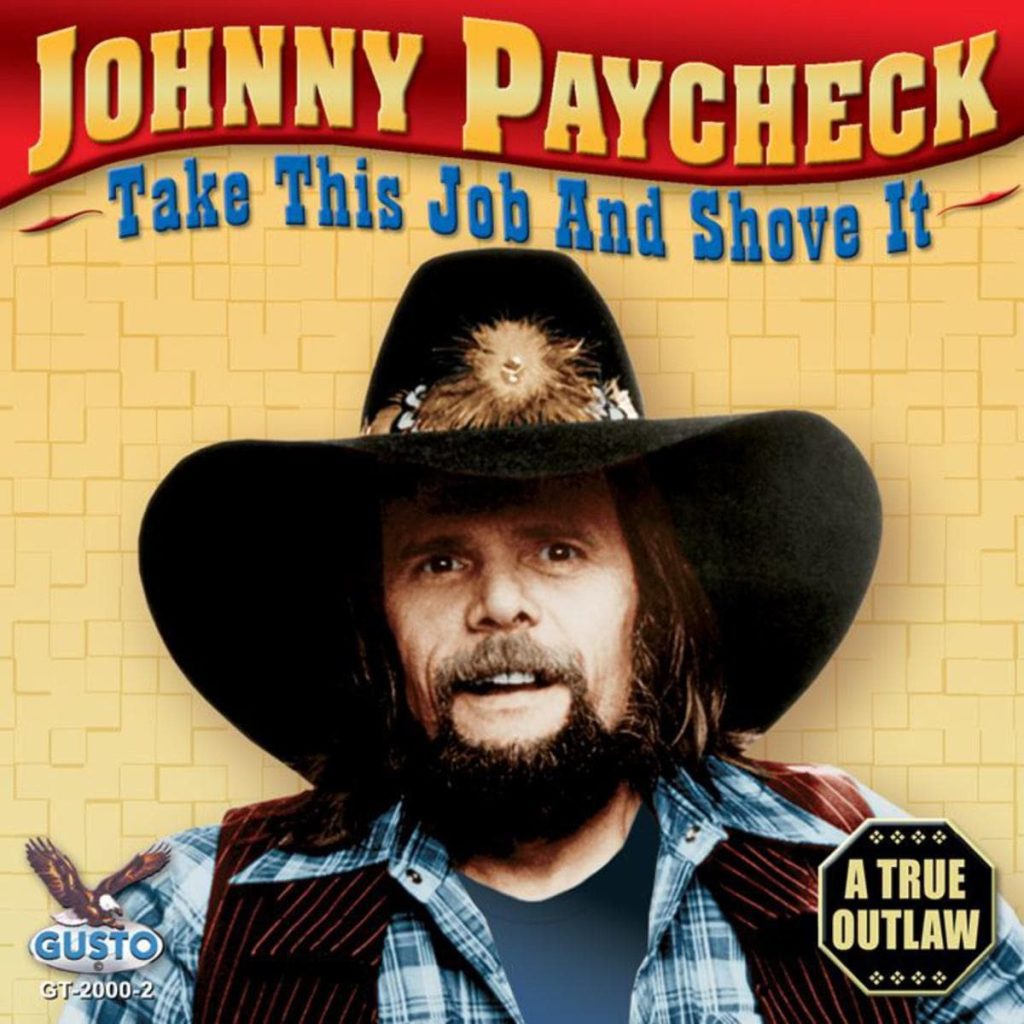
“Take This Job and Shove It” – Johnny Paycheck’s Anthem of Working-Class Rebellion
Released in 1977, Johnny Paycheck’s song “Take This Job and Shove It” became a cultural phenomenon almost overnight, capturing the frustrations of workers across America. Written by David Allan Coe, the song climbed to the top of the Billboard Hot Country Singles chart in early 1978, securing the No. 1 spot and solidifying Paycheck’s reputation as a voice for the working class. The track’s blend of humor, defiance, and relatability resonated deeply, transforming it into an unofficial anthem of rebellion for those fed up with soul-crushing jobs and bad bosses.
At its core, “Take This Job and Shove It” tells the story of a man at the end of his rope, tired of mistreatment at work and ready to quit in spectacular fashion. The narrator recounts how he’s given his all for years but received nothing in return—no recognition, no satisfaction, just relentless grind. The phrase “take this job and shove it” captures the unfiltered frustration that so many workers feel but often can’t express. It’s the fantasy of quitting without a second thought, with no need to hold back.
What makes this song especially effective is how it channels an undercurrent of blue-collar resentment that had been bubbling under the surface during the 1970s. It was a time marked by economic struggles, rising unemployment, and dissatisfaction with corporate structures. For many, Paycheck’s defiant delivery gave voice to their own frustrations—whether they worked on factory floors, in offices, or in service jobs. The song’s title became a catchphrase, immortalizing the dream of walking away from a thankless job and never looking back.
Musically, the song is driven by a steady honky-tonk rhythm, with electric guitar riffs and subtle steel guitar flourishes adding a layer of twang that complements Paycheck’s gruff vocal style. His voice carries a mix of weariness and anger, perfectly fitting the mood of a man at the edge. There’s also a hint of humor embedded in the performance—Paycheck’s delivery isn’t entirely bitter, making it feel like both a serious complaint and a knowing joke. That mix of defiance and humor is part of what makes the song so memorable.
The success of “Take This Job and Shove It” gave Johnny Paycheck a new level of fame, though it also cemented his image as an outlaw in country music. Paycheck was already known for his rough-and-tumble lifestyle, and the song only added to his reputation as a rebel figure in the genre. It became one of his biggest hits, but more than that, it became a part of pop culture. The song’s title was adopted into everyday language, used in everything from bumper stickers to sitcom punchlines, and it even inspired a 1981 comedy film of the same name.
Despite its playful tone, the song speaks to a very real experience: the burnout and frustration that comes from working hard without feeling appreciated. It taps into a universal feeling—the dream of telling off a bad boss or leaving an unpleasant job without a second thought. Even decades after its release, “Take This Job and Shove It” still resonates with audiences facing similar frustrations in the modern workforce. Whether it’s long hours, low pay, or toxic work environments, the song remains a timeless reminder that everyone reaches a breaking point.
Beyond its immediate appeal, the song also reflects the larger themes of outlaw country music—a movement that celebrated individualism, rebellion, and living outside the expectations of mainstream society. Alongside figures like Willie Nelson, Waylon Jennings, and David Allan Coe, Johnny Paycheck became part of this movement, embodying the spirit of those who refused to play by the rules.
“Take This Job and Shove It” may not offer a solution to the challenges of work-life balance, but it provides something just as valuable: catharsis. It gives listeners permission to laugh at the absurdity of it all, to imagine walking away without regret, and to feel a little bit better about the daily grind. For many, it’s not just a song—it’s a rallying cry, a moment of emotional release, and a reminder that they’re not alone in their frustrations.
Even today, the song’s message feels as relevant as ever. In a world where burnout is common and workers still struggle with unfair conditions, “Take This Job and Shove It” continues to strike a chord. It’s a reminder that sometimes, just imagining the act of quitting—whether you go through with it or not—can be empowering. Johnny Paycheck’s anthem remains a classic, proving that even in the face of hardship, a little humor and rebellion can go a long way.
Video: